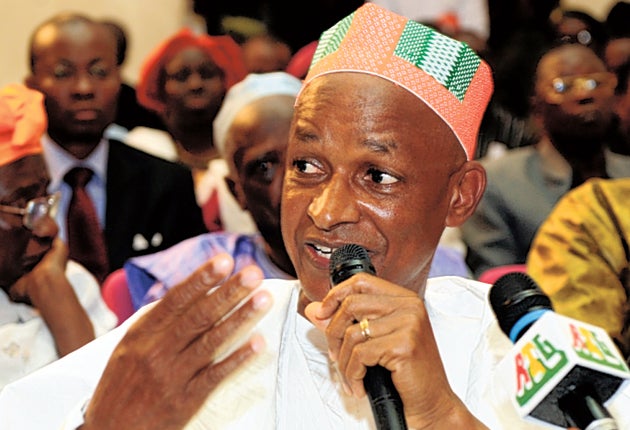Military rule holds sway as Guinea postpones elections

Your support helps us to tell the story
From reproductive rights to climate change to Big Tech, The Independent is on the ground when the story is developing. Whether it's investigating the financials of Elon Musk's pro-Trump PAC or producing our latest documentary, 'The A Word', which shines a light on the American women fighting for reproductive rights, we know how important it is to parse out the facts from the messaging.
At such a critical moment in US history, we need reporters on the ground. Your donation allows us to keep sending journalists to speak to both sides of the story.
The Independent is trusted by Americans across the entire political spectrum. And unlike many other quality news outlets, we choose not to lock Americans out of our reporting and analysis with paywalls. We believe quality journalism should be available to everyone, paid for by those who can afford it.
Your support makes all the difference.Hopes for a democratic transformation in West Africa were fading yesterday after Guinea indefinitely postponed elections which were due to be held this weekend.
It is three months since the first round of voting in a presidential poll that was meant to end decades of misrule and restore civilian government to the mineral-rich country.
"There will be no election this Sunday," said Thierno Ceydou Bayo of Guinea's electoral commission. "We have not yet decided on a new date. One option is to delay it by two weeks. But there are others that are proposing three weeks."
Officials said the delay was because of the late arrival of voting materials, and not because of politics. The uncertainty is expected to increase tensions in the capital, Conakry, where ethnic clashes broke out last weekend between supporters of the two presidential rivals. Street-fighting left more than 50 people injured and one dead. Guinea has been in a state of upheaval since the death of long-time dictator Lansana Conté two years ago.
The military junta that took his place squandered early public support after going back on promises to hand over power to civilian authorities and stay out of elections. More than 150 unarmed protesters were slaughtered by soldiers in a stadium massacre in September last year that UN investigators later blamed on junta leaders.
An opportunity to end military rule came after coup leader Moussa Dadis Camara was severely wounded in an attempted assassination by a junta rival and fled the country. His replacement, General Sekouba Konate, has overhauled the army, paved the way for elections and kept the military off the ballot.
Voting in the first round in June went off peacefully and put Cellou Dalein Diallo into a strong lead against runner-up Alpha Conde. Mr Diallo's party has accused interim authorities of delaying the run-off because "they know they will lose". His supporters – who come mainly from the Peul community, Guinea's largest ethnic group – have said there will be further violence if their man is prevented from winning.
Voting cards for 460,000 of the roughly 4.3 million registered voters are still being printed in South Africa and will not arrive in Conakry until Saturday, the day before the scheduled vote. A warehouse full of voting materials caught fire. Military ruler General Konate is expected to confirm the delay in the coming days.
Join our commenting forum
Join thought-provoking conversations, follow other Independent readers and see their replies
Comments